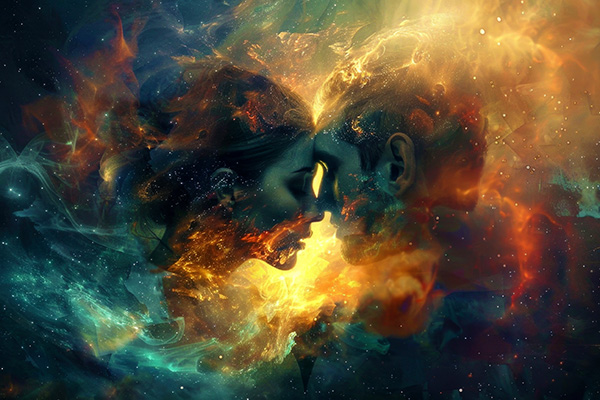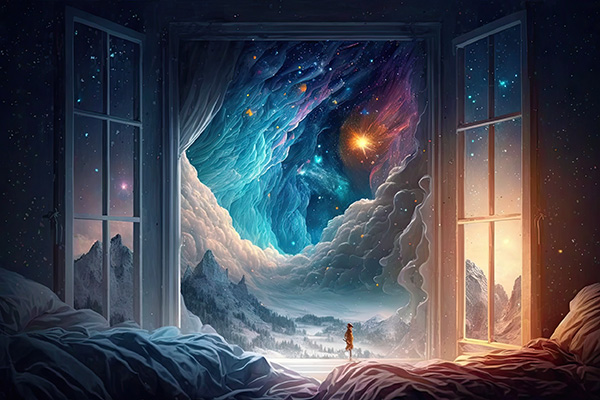dreams
A Cuddly Message From Grandma At Halloween
 All of us have lost, or will in time lose someone very dear to us. Like it or not, all of us also have to ponder the concept of life after death at some point in our life. Some of us have very strong beliefs on the subject, one way or the other. We either believe in the afterlife, or we do not.
All of us have lost, or will in time lose someone very dear to us. Like it or not, all of us also have to ponder the concept of life after death at some point in our life. Some of us have very strong beliefs on the subject, one way or the other. We either believe in the afterlife, or we do not.
For me the answer is simple and easy. I strongly believe, because of both my personal and professional experiences. For example, I have been visited many times by my grandparents, and I have communicated with many loved ones in spirit in my daily work, when I do readings for my clients.
My grandma often communicates with me in the dream state. She tends to show up when I least expect it, usually to give me a guiding message or to warn me about something. She always has been a worrier, in this life and the next! Right up to the very day she departed this life, she was telling us what to do to keep safe, and she was always giving us good advice. She is very wise.
I was asking her just the other day to give me a sign that she was around, and sure enough, she did. But this time she did not show up in a dream. She spoke to me…through a teddy bear! Yes, indeed.
It is one of those plush toys that makes a cute kissing sound and says, “I love you very much,” when you squeeze it. I was in the tub and this little teddy bear was right next to me, on top of a shelf. After drawing the bath, I was leaning back in the soothing, warm water, letting out a sigh of relief that a long day was over. Next thing you know, this teddy bear goes off on its own, making the kissing sounds and saying I love you, over and over. I knew right away that it was grandma making contact.
The Powerful Bond Of A First Love Connection
 I think we can really feel the intensity of true love the most when we are young and experience falling in love for the first time. The feeling is so strong and all encompassing.
I think we can really feel the intensity of true love the most when we are young and experience falling in love for the first time. The feeling is so strong and all encompassing.
When love takes over everything in the world just feels so much better. The grass is greener and everything is perfect and good, in a way that words simply cannot express. If you fall madly in love with someone, and you are really lucky and get to have and hold that love, it is even more profound and deep-seated.
I was fortunate to experience this once. It happened while I was working as a bagger at a local grocery store. I stood up, after stocking the paper bags, and suddenly locked eyes with a wonderful soul. He obviously felt the same way, because he returned with his phone number that he had written on a small piece of paper for me.
We had a wonderful romantic relationship for nearly four years. He ended up finishing medical school several states South from where we initially met. Despite my fear of flying, I did fly down to see him once. I also took my Tarot cards and did a few readings for him. The ‘Death’ card kept popping up, but I kept reassuring him that it usually means ‘transition’, and not to worry, no one is going to die.
He came home for a family visit a few months later. I was sitting at his parents’ pool in the back yard, where he grew up. I suddenly sensed something terrible. I had this overwhelming and ominous premonition that someone in his family was going to die. Being so connected to him, I felt that it wouldn’t be him, but his brother. I felt very strongly about this. Seeing him playing his guitar, so alive and happy, I could not begin to imagine losing him.
Spiritual Strategies For A Loving Relationship
 Over the years I have worked with many clients who either want to improve an existing relationship or manifest a new relationship.
Over the years I have worked with many clients who either want to improve an existing relationship or manifest a new relationship.
In my readings, I have seen that most of us carry patterns, energy blocks, or emotional knots that quietly affect our love lives. Many people describe the same inner cycle: a longing for deeper connection followed by fear, self-doubt, and frustration.
Depending on the needs to the particular individual or couple, I often recommend a few simple yet powerful practices that can shift the romantic energy field and open the heart.
These practices are gentle and effective, working not just on the emotional level but on the spiritual and energetic levels as well. They help clients reconnect with their inner wisdom and realign with love.
We tend to overthink our love lives. We analyze our relationships from every angle, hoping to find the answers in logic.
But love is not a puzzle to be solved. It is a frequency to be attuned to. And when we work with spiritual tools, we allow ourselves to rise above the clutter of thought and enter a state of clarity and openness.
I have found that the following practices, when done consistently, create a soft and supportive foundation for emotional healing and soulful connection. They do not require dramatic effort or complex rituals. They are simple shifts in intention and awareness that can lead to powerful outcomes.



